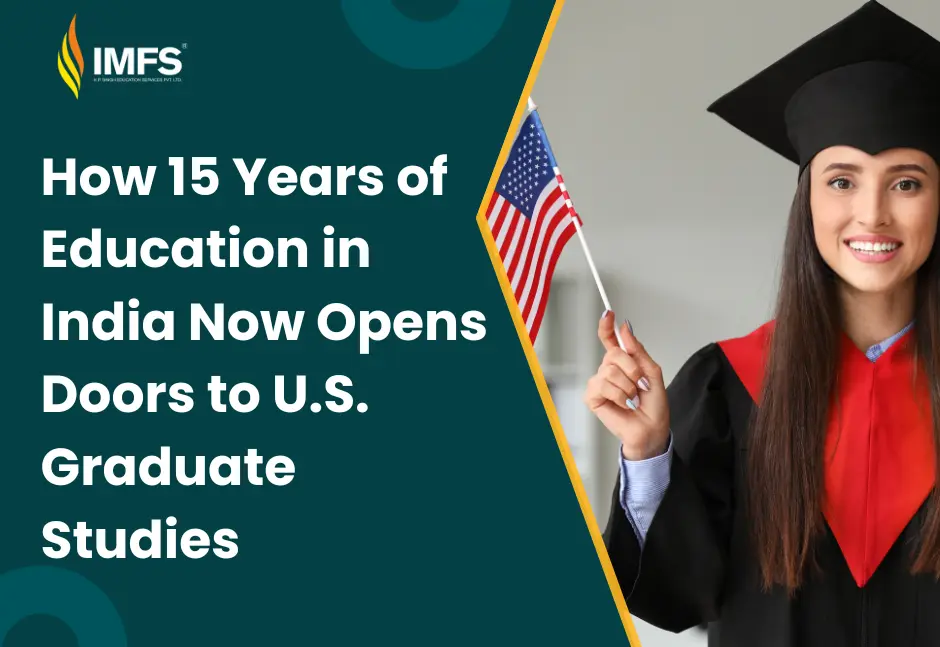How 15 Years of Education in India Now Opens Doors to U.S. Graduate Studies
In a significant shift from previous educational norms, students from India with just 15 years of formal education—including those holding a Bachelor of Science (BSc), Bachelor of Arts (BA), or Bachelor of Commerce (BCom)—now have the opportunity to pursue Master of Science (MS) programs in the United States. This evolution in educational recognition bridges a crucial gap, allowing a broader cohort of Indian students to access advanced studies and opportunities abroad. Here, we explore the implications of this change and the diverse graduate paths now available, especially in light of the challenges and opportunities presented by emerging technologies like artificial intelligence (AI) and machine learning (ML).

Understanding the Shift
Traditionally, U.S. universities required Indian students to complete 16 years of undergraduate education, mirroring the U.S. system of four-year undergraduate degrees. This often meant that students with three-year degrees such as BSc in Information Technology or Electronics, BA in Economics, or BCom had to undertake an additional year of study or a postgraduate diploma to qualify for MS programs. However, as global educational standards evolve and the demand for highly skilled professionals increases, more U.S. universities recognize the value and rigor of India’s three-year degree courses.
Increasingly, universities in the US accept 15 years of UG studies from India. An essential requirement is that students from India must have completed the UG program from a college/ university that is NAAC ‘A’ accredited. And that such a student should have an excellent academic record, with over 7 CGPA (65% marks). Some universities may also request an Indian student to undergo an evaluation of their educational credentials via WES evaluation that costs between $ 107 and $ 160. Those universities that do not recognize the 15 years for an MS program may ask the student to undergo pre-requisite courses designed to bring a student from a 15-year education background on par with a student from 16 years of education.
Opportunities Unlocked
For BSc Graduates (IT and Electronics)
Graduates with a BSc in IT or Electronics can now directly apply to MS programs in related fields such as Computer Science, Information Systems, Electrical Engineering, and more specialized programs like Cybersecurity, Data Science, and Robotics. These programs not only deepen technical expertise but also prepare graduates for significant roles in industries that are pivotal to the technological advancement of society.
For BCom Graduates
The U.S. offers specialized MS programs in Finance, Marketing, Business Analytics, Supply Chain Management, Project Management, Marketing/ Digital Marketing, and International Business for those with a commerce background. These courses are designed to mesh foundational knowledge with advanced business practices and modern tools like big data analytics and AI, equipping graduates to tackle contemporary challenges in global markets.
For BA Graduates (Economics, Psychology, Finance, HR)
BA holders in Economics, Psychology, Finance, or Human Resources can pursue MS degrees in Applied Economics, Organizational Psychology, Financial Engineering, Actuarial Sciences, and Human Resource Management. These programs often incorporate quantitative methods, research strategies, and the latest in behavioral science, providing a rich ground for advancing in both academic and practical career paths.
Navigating AI and ML Challenges
The rise of AI and ML technologies poses unique challenges but also opens new vistas for job creation and career evolution. As repetitive tasks become automated, the demand for sophisticated human skills—like critical thinking, problem-solving, and ethical judgment—grows. Here’s how an MS from the U.S. can position graduates advantageously:
- Skill Enhancement: U.S. graduate programs are at the forefront of integrating AI and ML into their curricula, ensuring that students not only understand these technologies but also how to apply them creatively and ethically across various sectors.
- Innovation and Entrepreneurship: Many programs offer innovation management and entrepreneurship modules, empowering students to start their tech ventures or lead innovation in established companies.
- Interdisciplinary Learning: With the integration of AI and ML in diverse fields such as healthcare, finance, and urban planning, there’s a growing need for professionals who can work at the intersection of technology and other disciplines, a skill strongly emphasized in U.S. graduate programs.
- Networking: Studying in the U.S. allows students to build a global network of professionals and academicians, which can be crucial when navigating the rapidly changing job landscape.
Conclusion
The scope for growth in these sectors is tremendous, and the returns on investment generally go beyond $ 80,000 per year. Such an income provides students from India with an excellent career placement opportunity. Thus, the recognition of India’s three-year degrees by U.S. universities marks a pivotal change, democratizing access to premium education and global career paths. As technologies like AI and ML reshape industries, enhanced access to U.S. MS programs equips Indian graduates not just to meet the challenges of today but to lead the innovations of tomorrow. This transition not only reflects a progressive alignment of global educational standards but also reaffirms the critical role of international academic mobility in fostering global talent pools ready to tackle the world’s most pressing issues.


